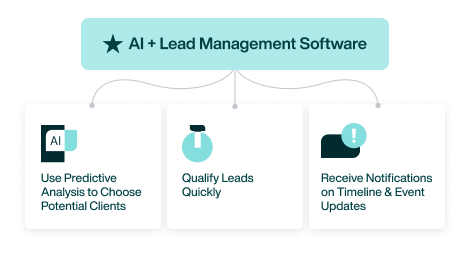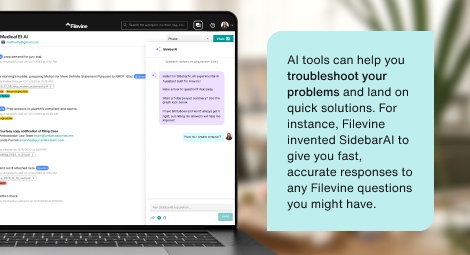Much discourse around AI is theoretical and abstract. But how does it actually affect the daily lives of legal professionals — and the annual finances of law firms?
A team of legal experts recently investigated the economic implications of using AI. They found that a single tool can save an average firm tens of thousands of dollars every year.
Read the full report here.
The study in question is looking at Filevine’s AIFields, which extracts key information from your case files in order to provide useful and concise summaries. This is particularly useful when analyzing long legal documents like depositions or medical records, where it brings an 85% cost reduction.
With savings from AI, a leaner legal team can accomplish more work, without hiring additional staff or outsourcing to others.
But long-term success requires careful scrutiny of the tools you deploy. Not every AI tool is useful or appropriate for lawyers. As a cautionary tale: one lawyer used ChatGPT to write a legal brief, only to have opposing counsel discover that all of the case citations within it were fake. The short-term benefit of fast work led to continuing headaches down the road.
To protect yourself and your firm, seek out trusted, vetted tools that are developed by those who understand the special needs and ethical duties of legal professionals.
Which AI Tools Can Lawyers Trust?
AI tools that help you uphold legal ethics.
Look for AI tools that are designed to work hand-in-hand with legal experts, ensuring that it’s easy to meaningfully review the materials it generates.
For instance, most AI models don’t automatically include references or citations. If you want to meaningfully review the document produced, you have to spend significant time investigating each line. Or you risk submitting materials that haven’t been properly reviewed.
Instead, look for AI tools that embed references so you can easily cross-check the results and certify everything is correct. Also seek out AI vendors who control the materials used to “train” their AI models to ensure it’s not being fed bad data or junk phrases, and also carefully engineer the prompts you can use to ensure high-quality responses, not “hallucinations.”
AI tools that protect your data and personal privacy.
In order to work well, AI tools have to gather and store troves of information. But legal information is especially sensitive and confidential. Look for AI vendors with a proven track record when it comes to security measures or user confidentiality.
Review company privacy policies and security features. Tools that are already contained within your secure case management system might limit your vulnerability to potential data breaches.
AI tools that support the long-term well-being of the legal industry.
As a legal professional, you understand the importance of the practice of law in our society. Look for tools that support lawyers, rather than trying to replace them. By lightening the load of legal professionals, appropriate AI tools can free lawyers to create better legal work, improve the client experience, and expand access to justice.
Filevine carefully adheres to these values to bring you AI tools you can trust. To learn more, check out Filevine’s white paper on the future of AI in law.
Top 5 Ways to Start Using Legal AI Tools Today
Filevine has a slate of carefully-developed AI technology that can make your practice more efficient and profitable. Here are tools you can begin using today:
1. Analyze case materials.
Legal professionals spend tremendous amounts of time browsing through case information in search of all the relevant details. But new AI technology is particularly adept at sifting through mountains of information and pulling out the relevant details.

One example of this is Filevine’s AIFields, which can scan even handwritten notes and text in digital images to extract information. You can then use this to generate summaries, create chronological lists, or even drill down on potential inconsistencies in deposition materials.
2. Speed up your intake process.

When potential clients are searching for a new lawyer, they want fast answers, empathetic listeners, and smooth onboarding. Almost every aspect of the intake process can be aided by new AI technology. Lead Docket’s new tool LeadsAI helps you create higher quality and more efficient intake processes. It helps you qualify leads quickly with clear summaries of the key facts of each matter, and keeps you up-to-speed through timelines of recent events. Some case types can also benefit from predictive analysis, which predicts the likelihood of success for new potential cases, based on a trove of proprietary information.
3. Write demand letters.

Demand letters are a crucial step in many legal matters. But to create a full and accurate account of the issue, you sometimes have to sort through a tremendous amount of information. Tools like DemandsAI® can help you create polished, accurate demand letters in a fraction of the time.
4. Solve technical problems.

When you’re working on a legal matter, the last thing you want is time wasted on figuring out your software. AI tools can help you troubleshoot your problems and land on quick solutions. For instance, Filevine invented Filevine AI (Previously SidebarAI) to give you fast, accurate responses to any filevine questions you might have. Use it to fix problems, unlock greater efficiency, or learn new features
5. Fill out legal forms.
Some areas of law require lawyers to comb through their materials to fill out redundant forms. AI tools can search for the answers instead, cutting out tedious and duplicative work.

Immigration lawyers are particularly burdened with heavy workloads and rapidly-changing policies. But ImmigrationAI® simplifies and improves the process for clients and lawyers. The tool extracts key information directly from case documents and automatically populates USCIS forms, to help the work move forward more efficiently.
Schedule a demo to learn more about how AI can improve your legal practice.